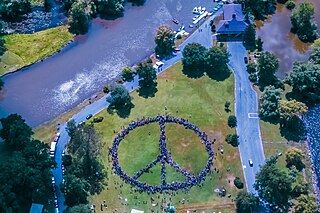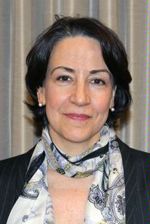This article relies too much on references to primary sources .(July 2008) (Learn how and when to remove this template message) |
The Mediation Support Unit was established in 2006 within the Department for Political Affairs as an outcome of the 2005 World Summit which included a call for the expansion of the UN's conflict prevention and resolution capacity.

The United Nations Department of Political and Peacebuilding Affairs (DPPA) is a department of the Secretariat of the United Nations (UN) with responsibility for monitoring and assessing global political developments and advising and assisting the UN Secretary General and his envoys in the peaceful prevention and resolution of conflict around the world. The department manages field-based political missions in Africa, Central Asia, and the Middle East, and has in recent years been increasing its professional capacities in conflict mediation and preventive diplomacy. DPA also oversees UN electoral assistance to Member States of the organization. Established in 1992, the department's responsibilities also include providing secretariat support to the UN Security Council and two standing committees created by the General Assembly concerning the Rights of the Palestinian People and Decolonization.

The 2005 World Summit, 14–16 September 2005, was a follow-up summit meeting to the United Nations' 2000 Millennium Summit, which led to the Millennium Declaration of the Millennium Development Goals (MDGs). Representatives of the then 191 member states met in New York City for what the United Nations described as "a once-in-a-generation opportunity to take bold decisions in the areas of development, security, human rights and reform of the United Nations."

Conflict resolution is conceptualized as the methods and processes involved in facilitating the peaceful ending of conflict and retribution. Committed group members attempt to resolve group conflicts by actively communicating information about their conflicting motives or ideologies to the rest of the group and by engaging in collective negotiation. Dimensions of resolution typically parallel the dimensions of conflict in the way the conflict is processed. Cognitive resolution is the way disputants understand and view the conflict, with beliefs, perspectives, understandings and attitudes. Emotional resolution is in the way disputants feel about a conflict, the emotional energy. Behavioral resolution is reflective of how the disputants act, their behavior. Ultimately a wide range of methods and procedures for addressing conflict exist, including negotiation, mediation, mediation-arbitration, diplomacy, and creative peacebuilding.
The MSU serves as a central repository for peacemaking experiences and acts as a clearing house for lessons learned and best practices. The Unit also coordinates training for mediators and provides them with advice on UN standards and operating procedures. [1]
Peacemaking is practical conflict transformation focused upon establishing equitable power relationships robust enough to forestall future conflict, often including the establishment of means of agreeing on ethical decisions within a community, or among parties, that had previously engaged in inappropriate responses to conflict. Peacemaking seeks to achieve full reconciliation among adversaries and new mutual understanding among parties and stakeholders. When applied in criminal justice matters, peacemaking is usually called restorative justice, but sometimes also transformative justice, a term coined by the late Canadian justice theorist and activist Ruth Morris. One popular example of peacemaking is the several types of mediation, usually between two parties and involving a third, a facilitator or mediator.
Mediation is a dynamic, structured, interactive process where a neutral third party assists disputing parties in resolving conflict through the use of specialized communication and negotiation techniques. All participants in mediation are encouraged to actively participate in the process. Mediation is a "party-centered" process in that it is focused primarily upon the needs, rights, and interests of the parties. The mediator uses a wide variety of techniques to guide the process in a constructive direction and to help the parties find their optimal solution. A mediator is facilitative in that she/he manages the interaction between parties and facilitates open communication. Mediation is also evaluative in that the mediator analyzes issues and relevant norms ("reality-testing"), while refraining from providing prescriptive advice to the parties.
Between 2008 and 2011, the MSU was involved in supporting over 30 peace processes on all continents.

Peacebuilding is an activity that aims to resolve injustice in nonviolent ways and to transform the cultural & structural conditions that generate deadly or destructive conflict. It revolves around developing constructive personal, group, and political relationships across ethnic, religious, class, national, and racial boundaries. This process includes violence prevention; conflict management, resolution, or transformation; and post-conflict reconciliation or trauma healing, i.e., before, during, and after any given case of violence.
The MSU manages the United Nations Standby Team of Mediation Experts, an on call group of experts who assist mediators in the field that was established in 2008. The MSU also manages the online mediation support tool UN Peacemaker.
UN Peacemaker is an information and knowledge management tool of the United Nations. Intended for peacemaking professionals, it includes an extensive database of peace agreements, guidance material and information on the UN’s mediation support services. It is managed by the Mediation Support Unit in the Department of Political Affairs.





